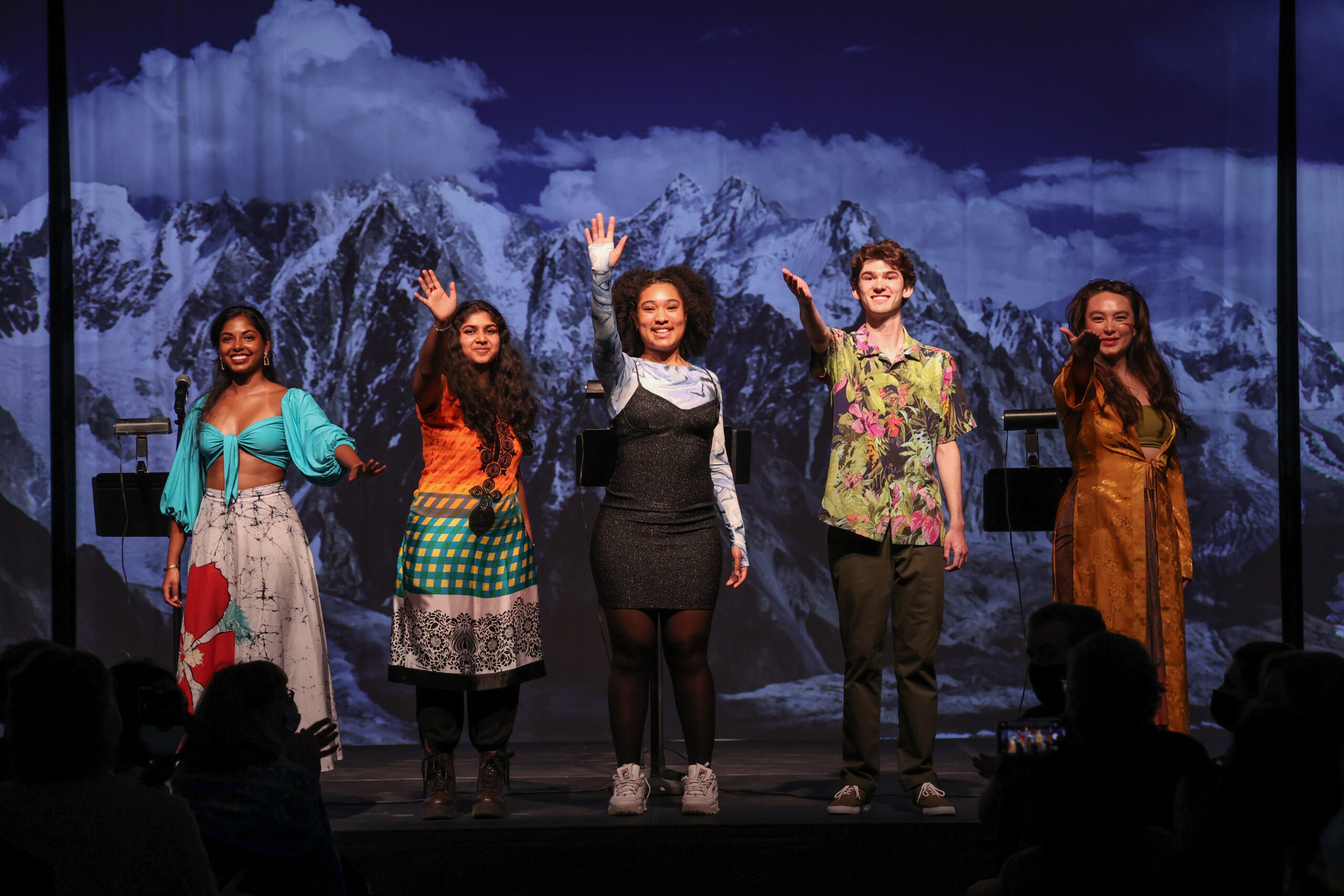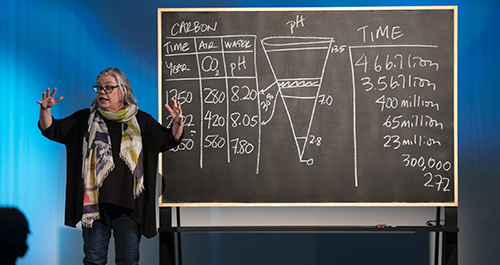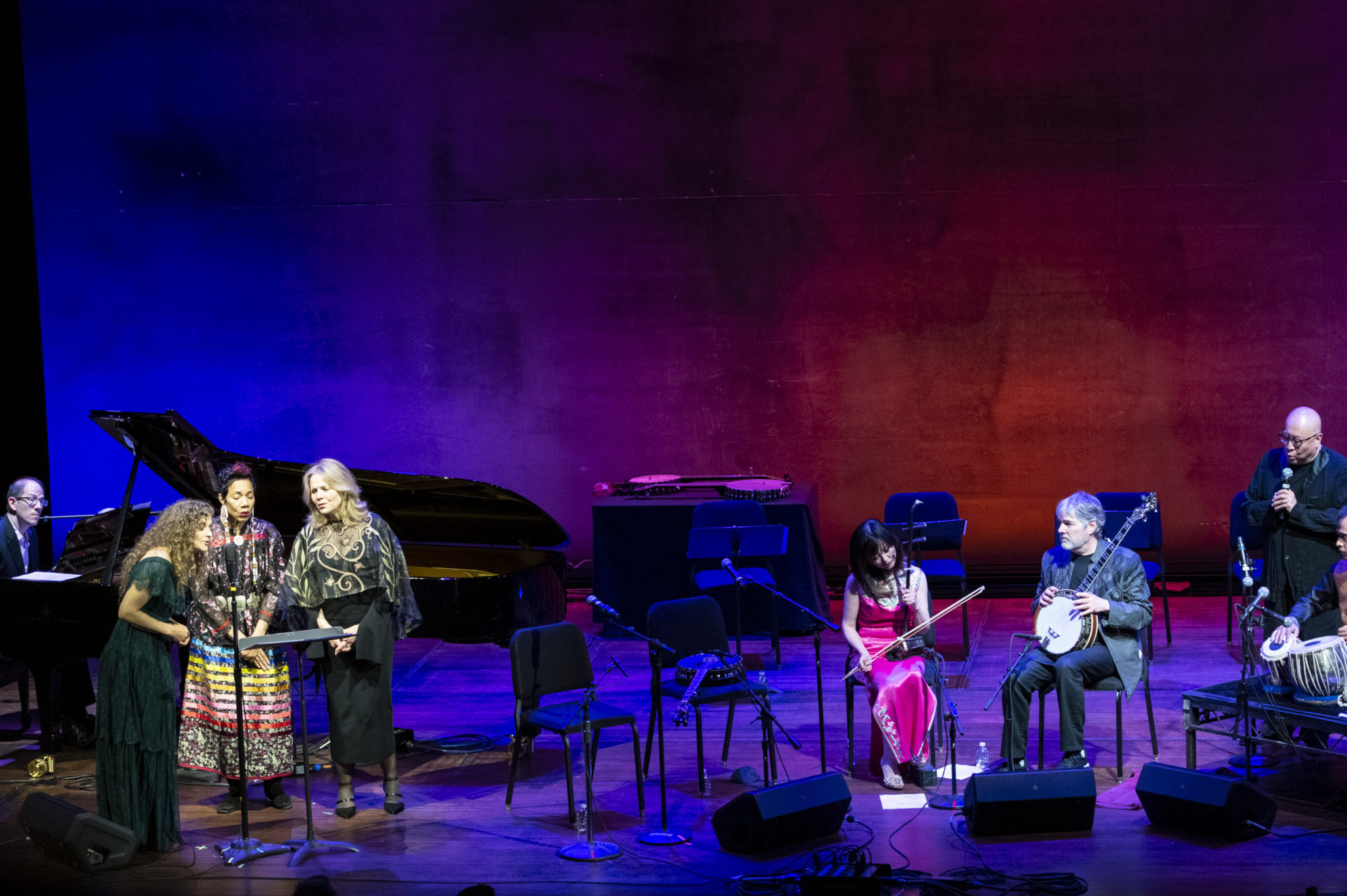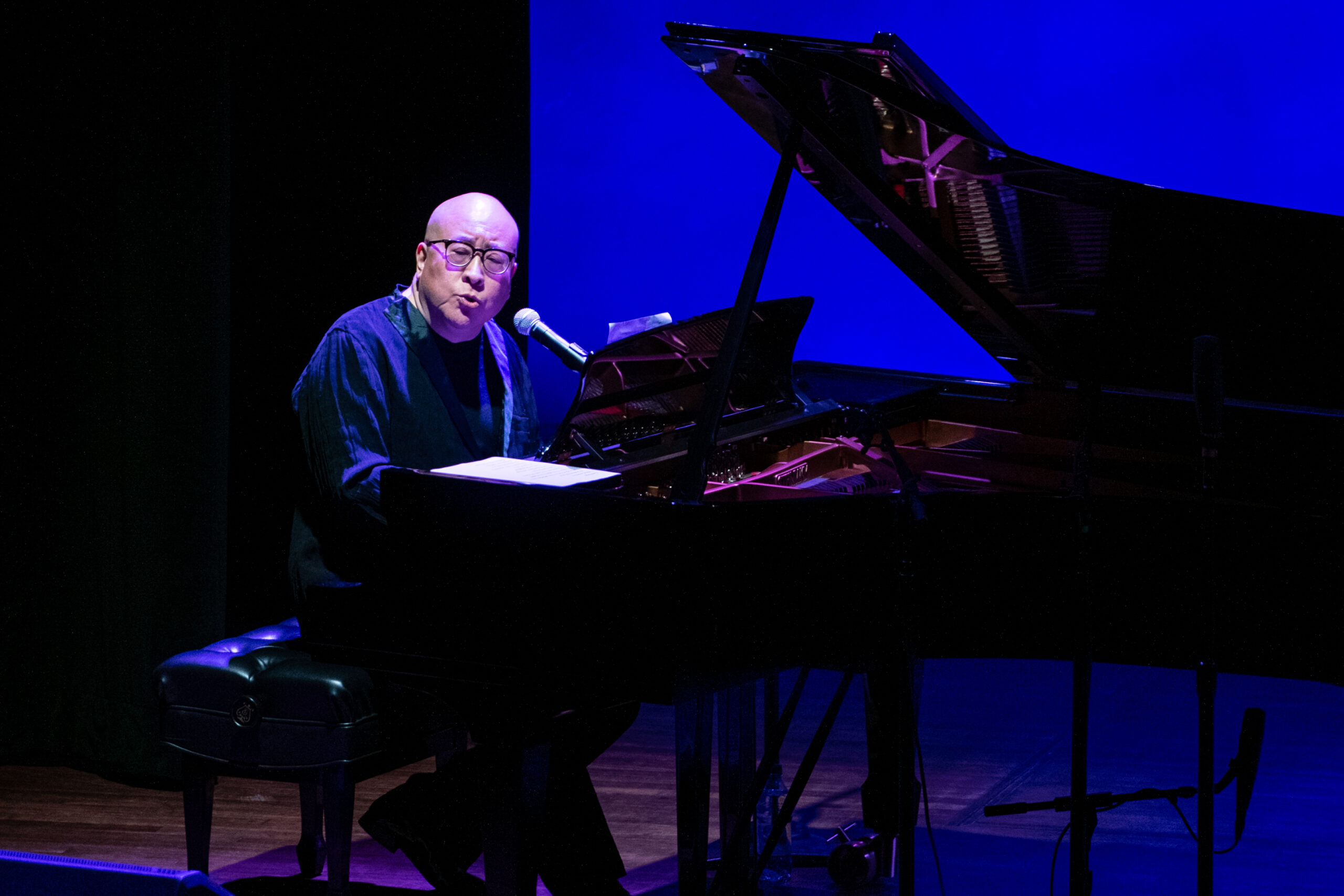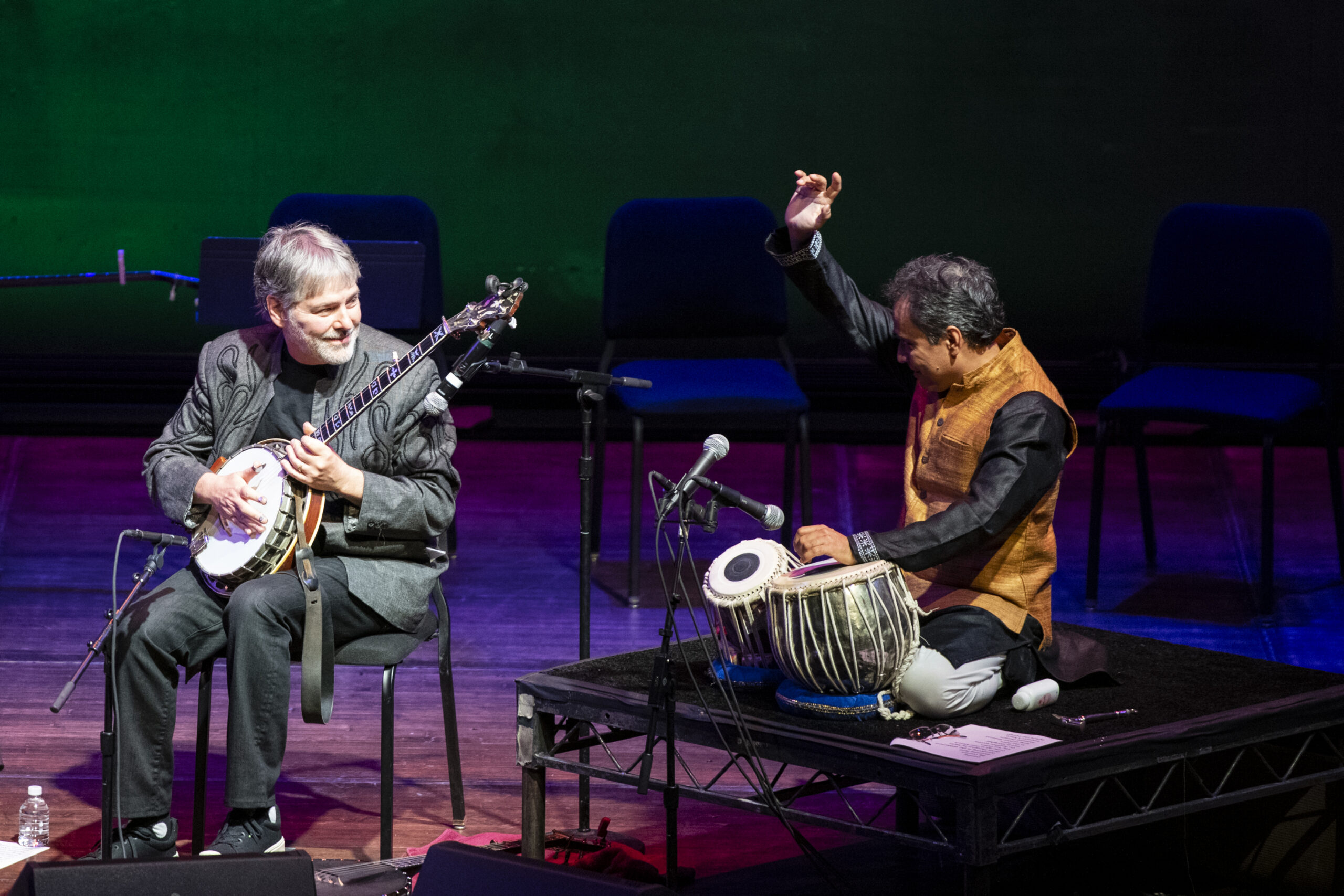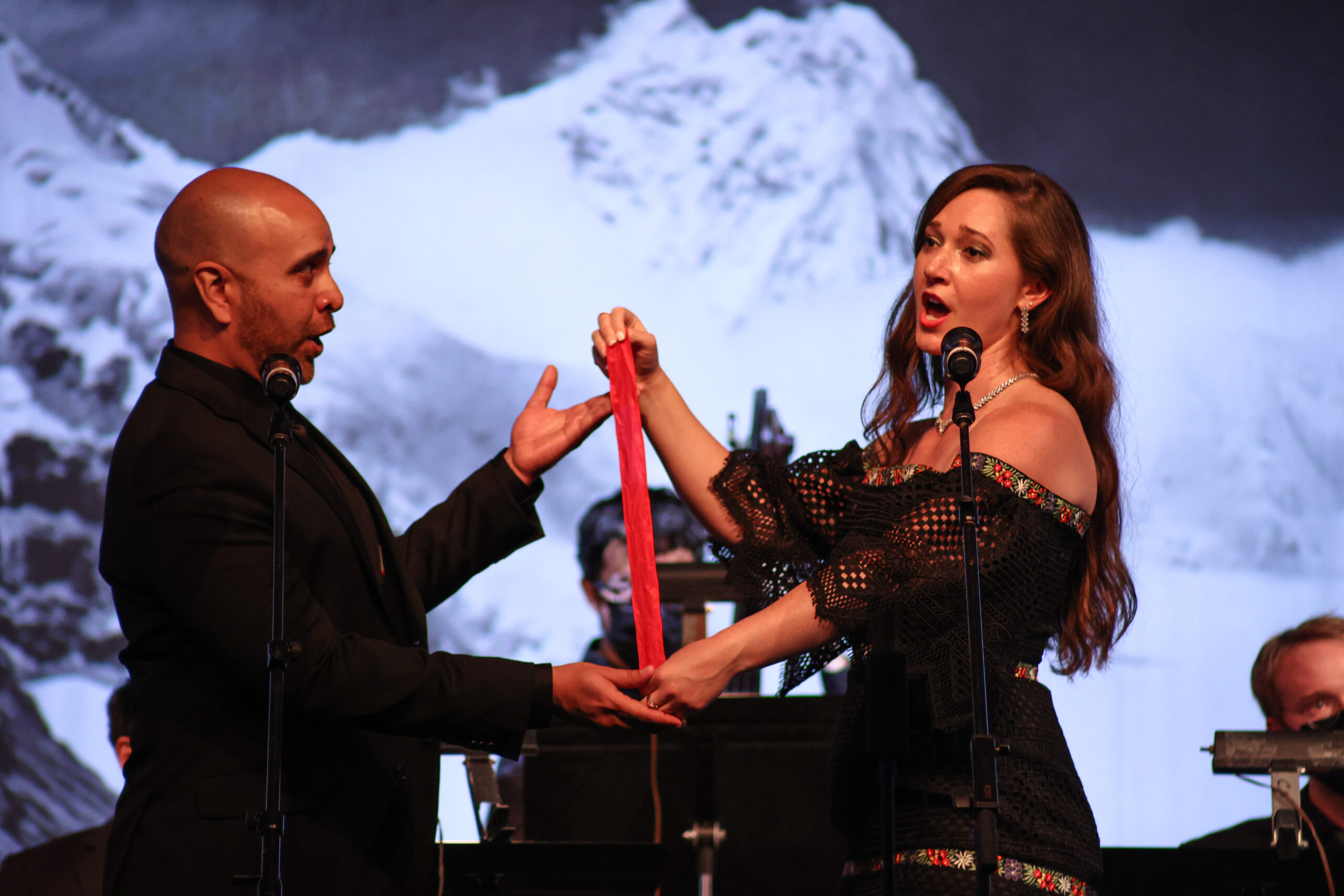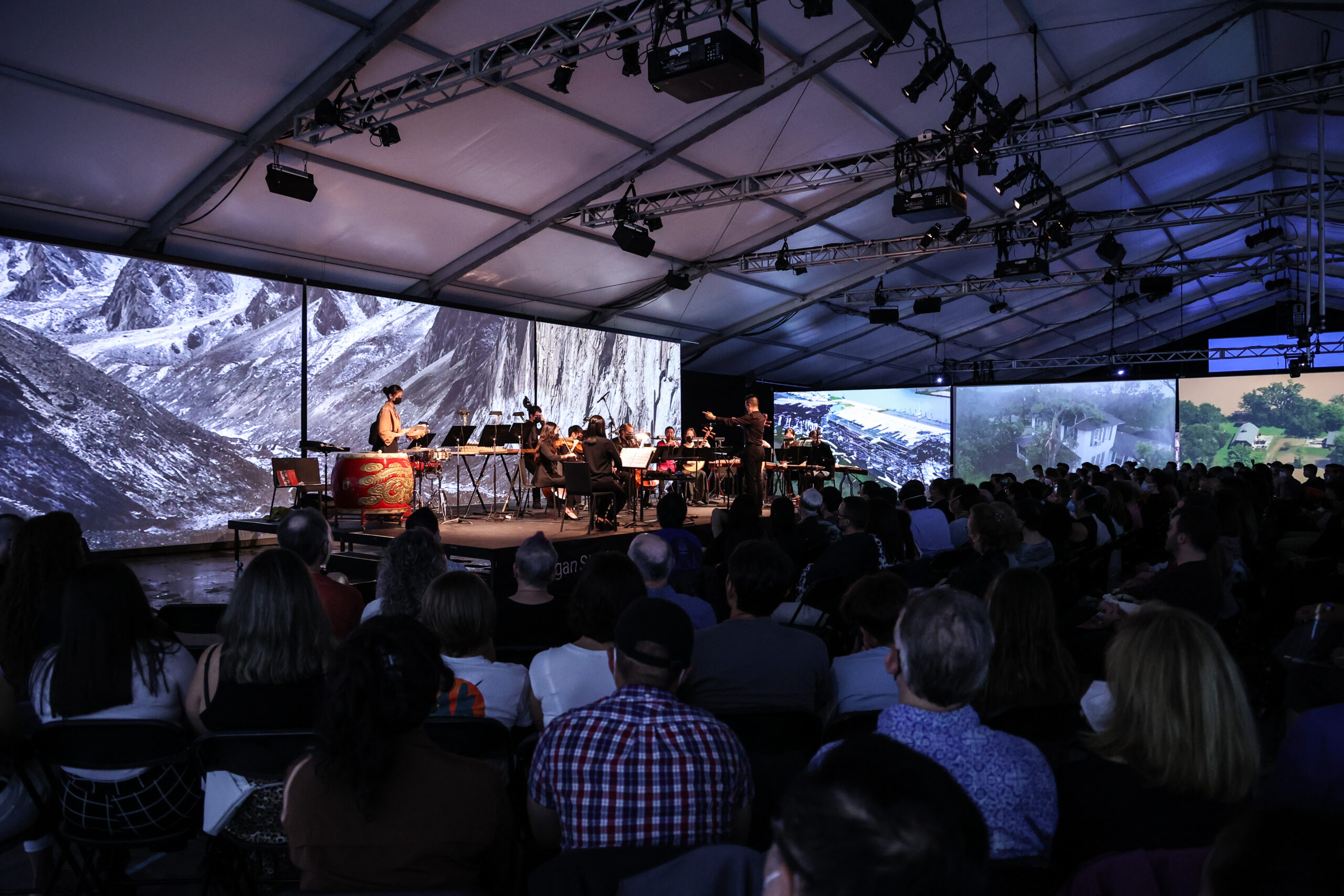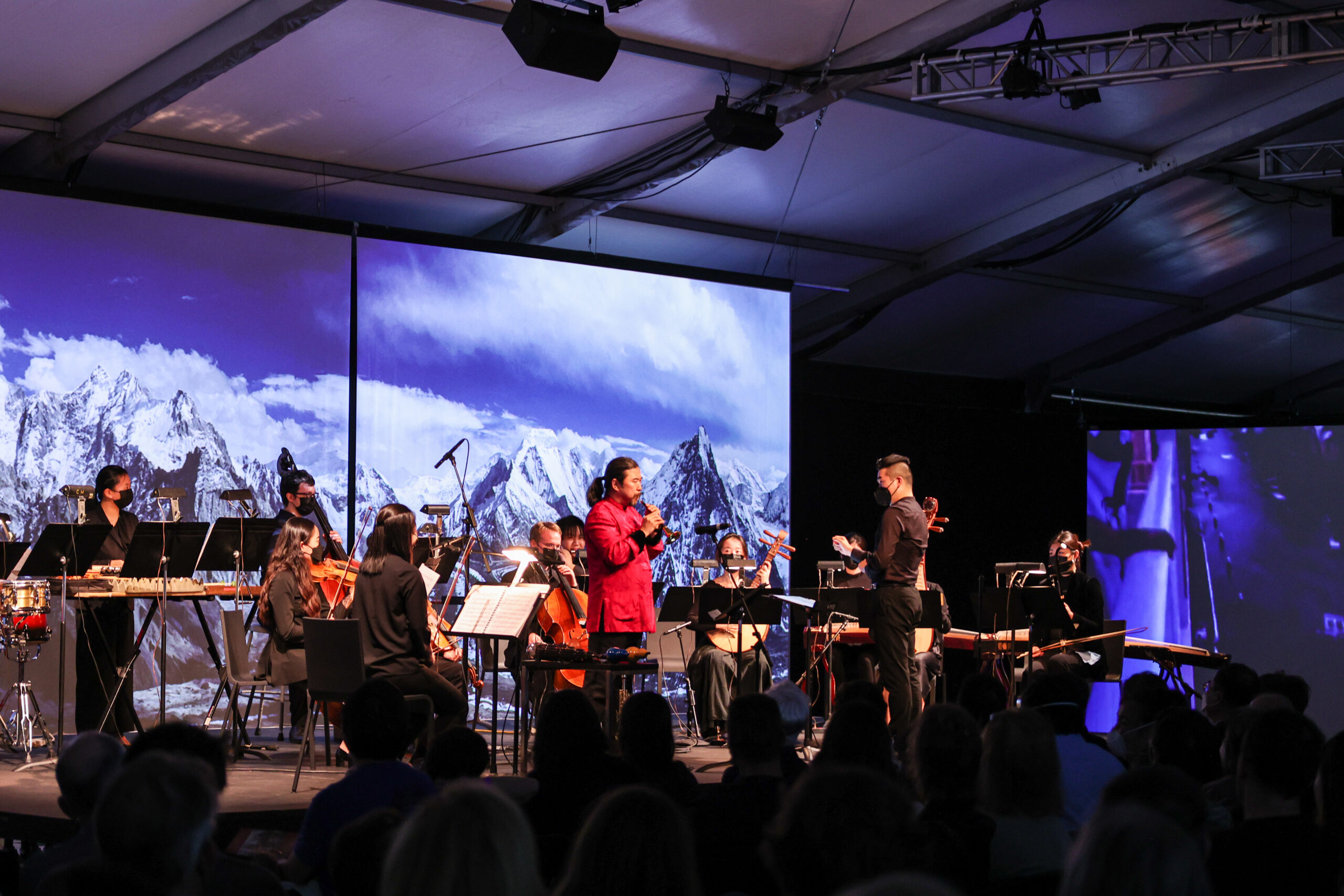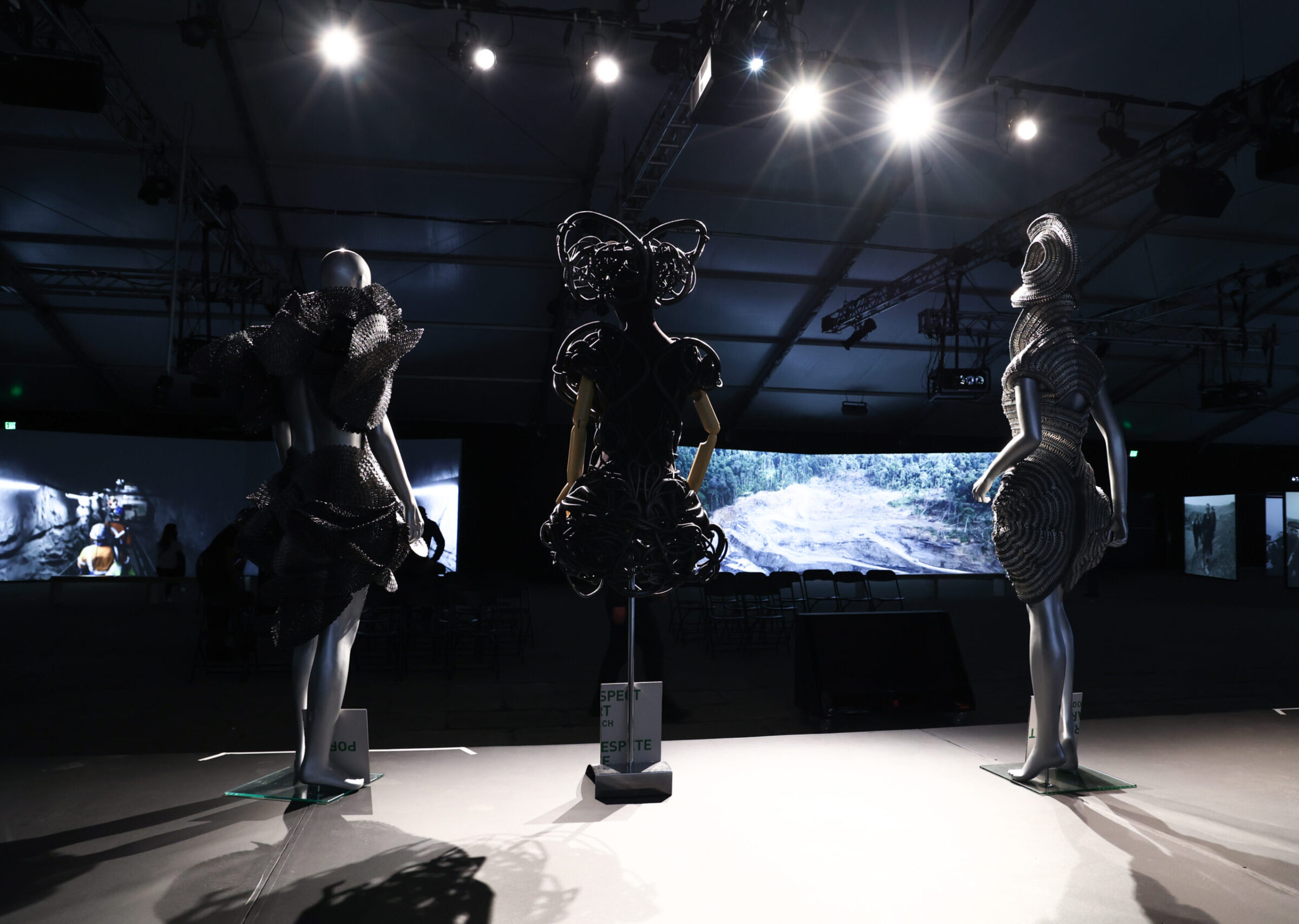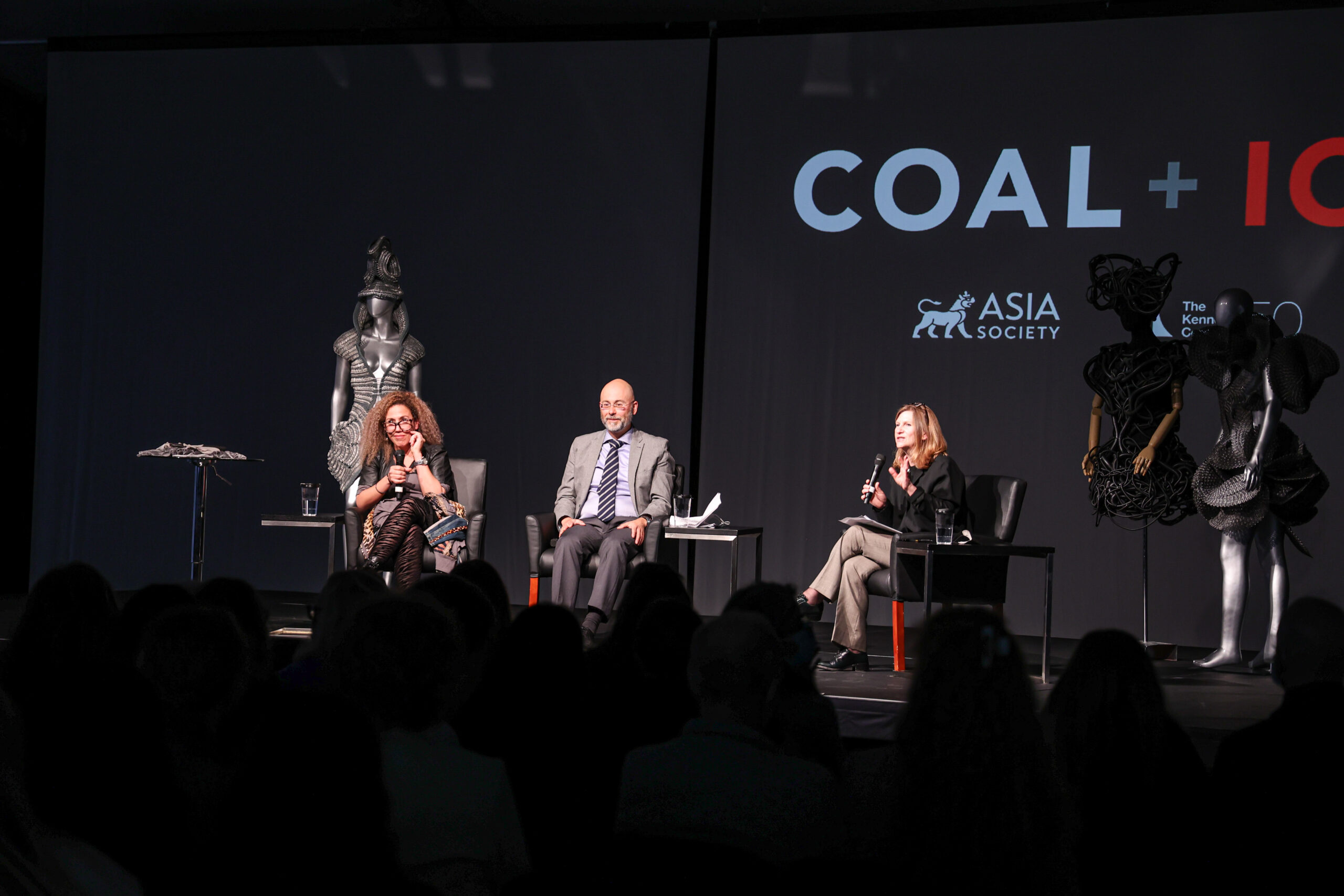Washington, D.C. Events
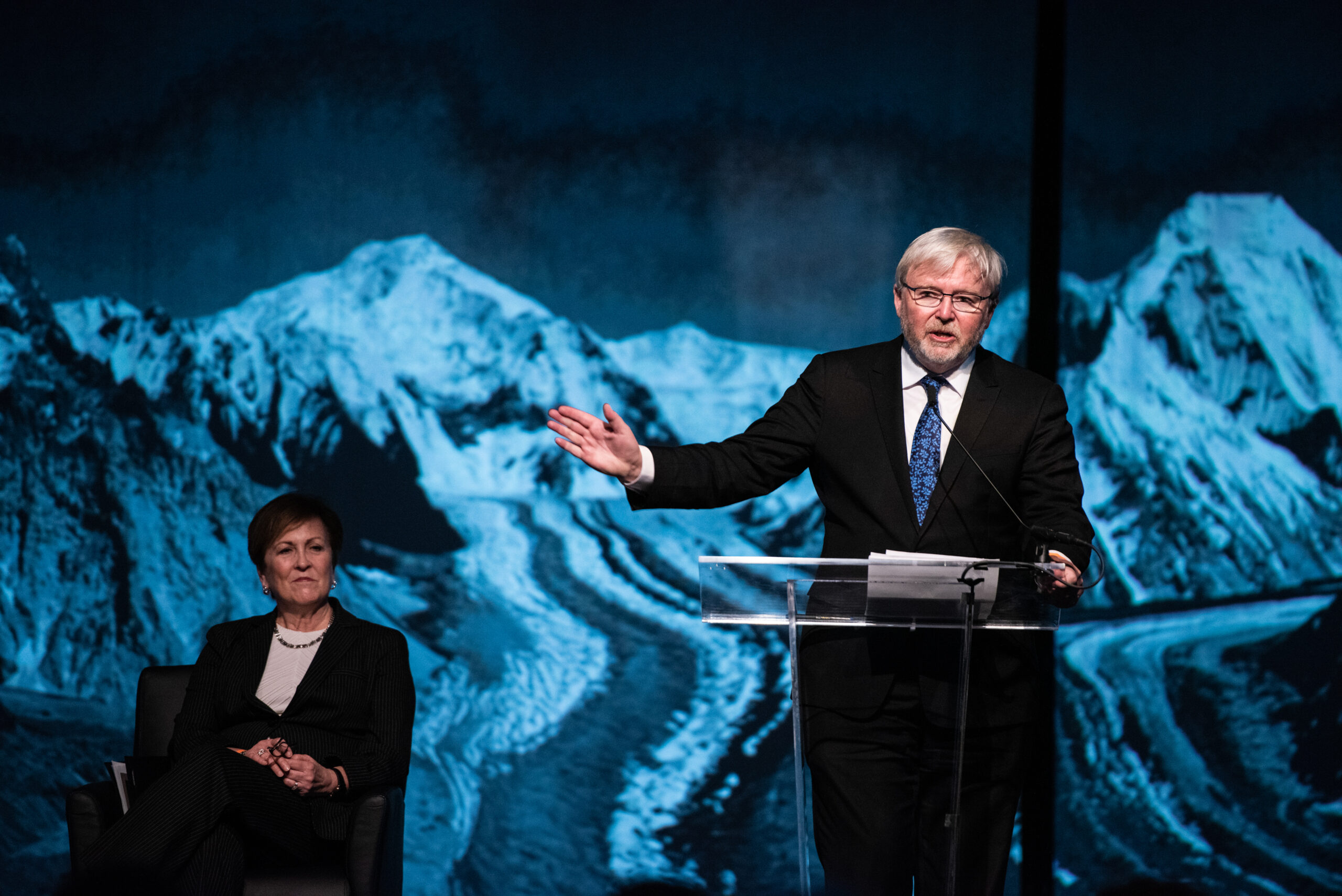
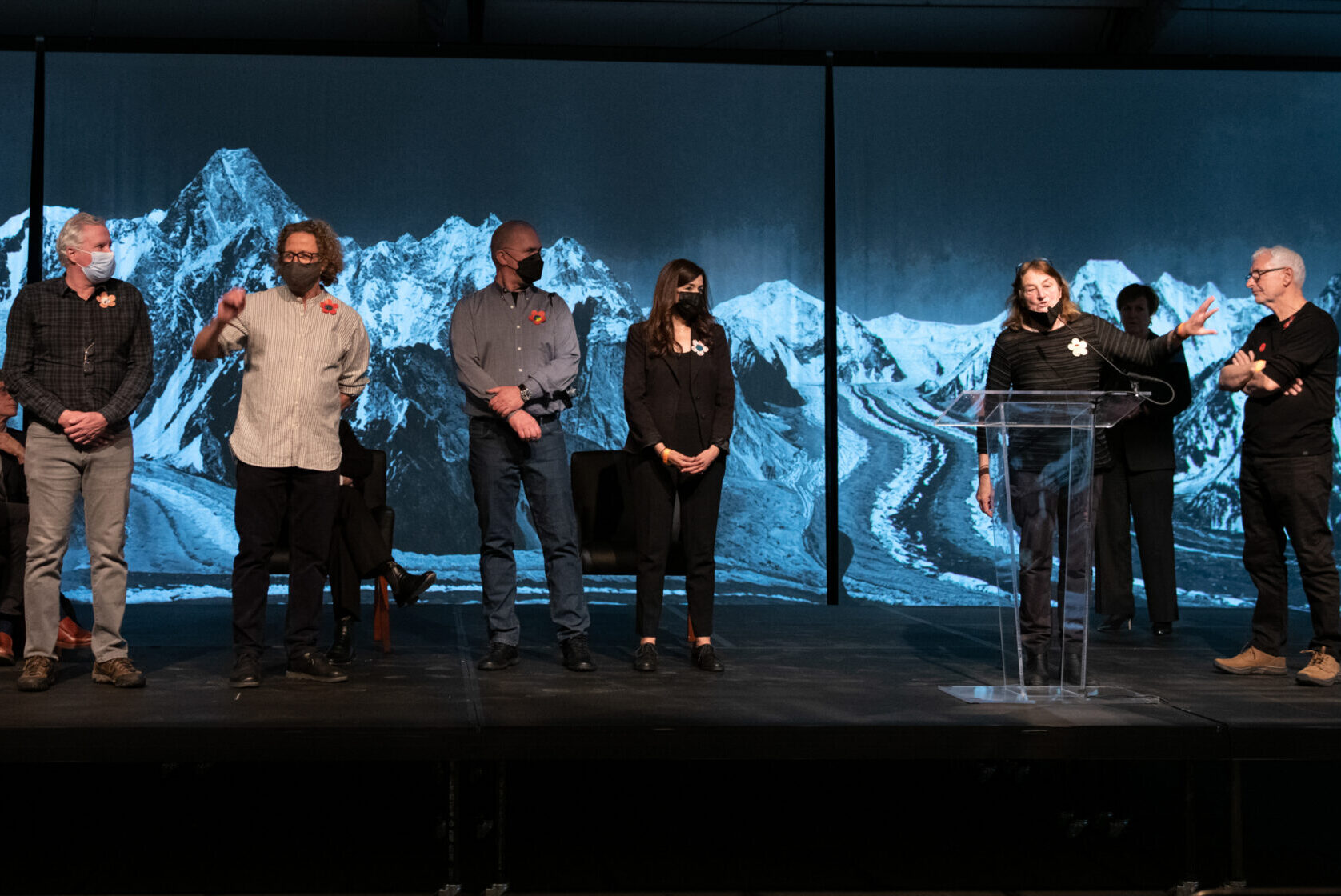
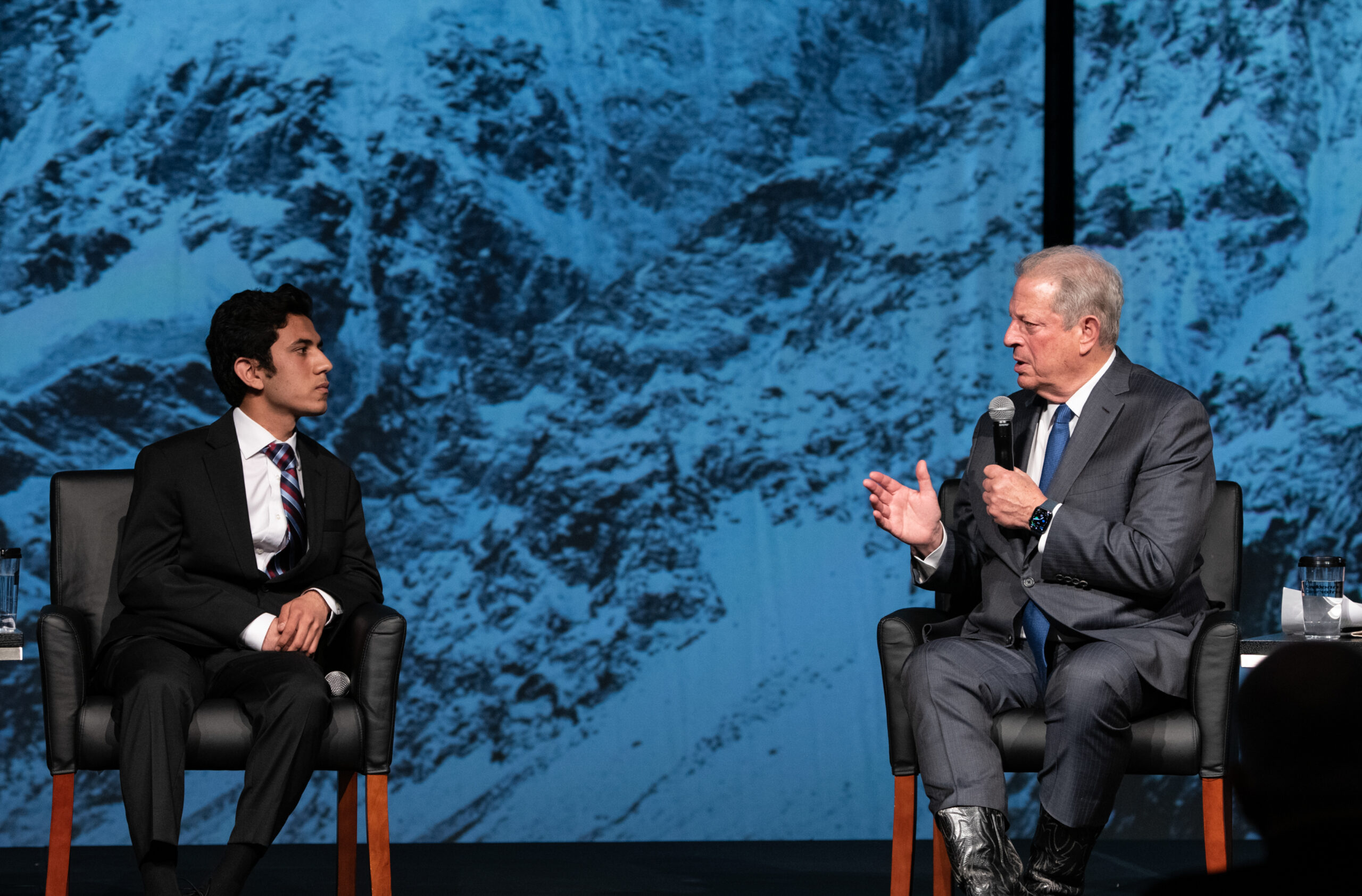
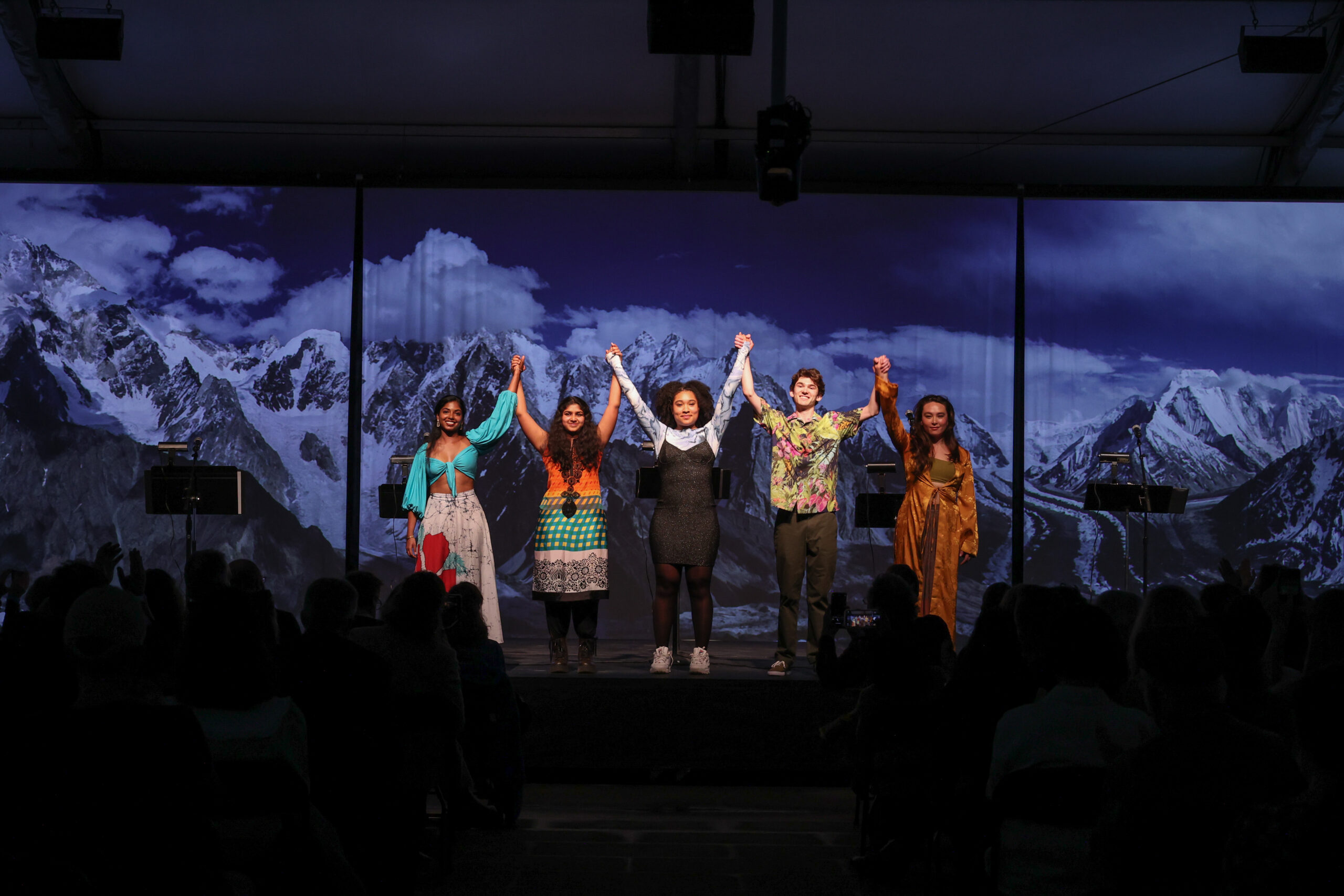
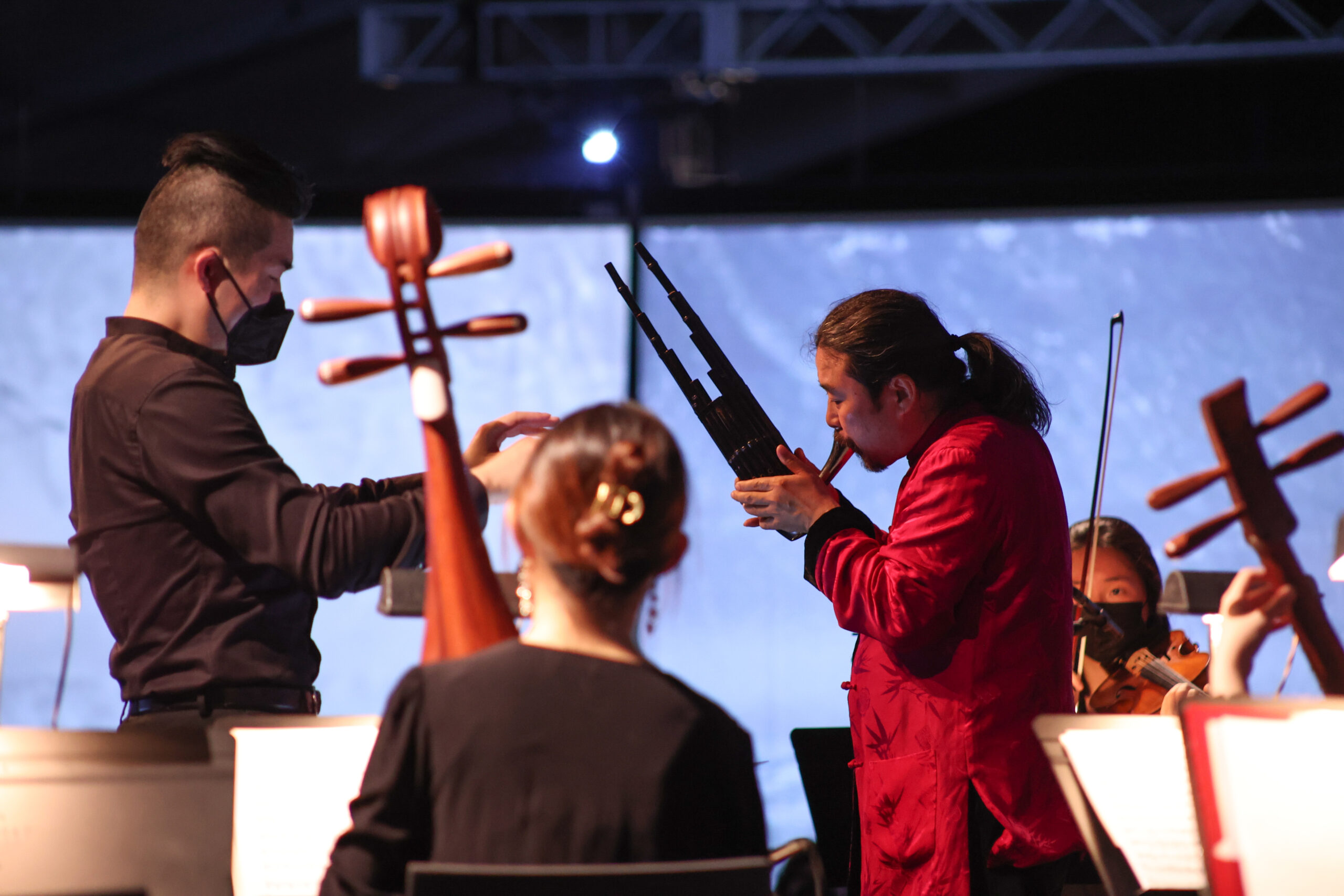
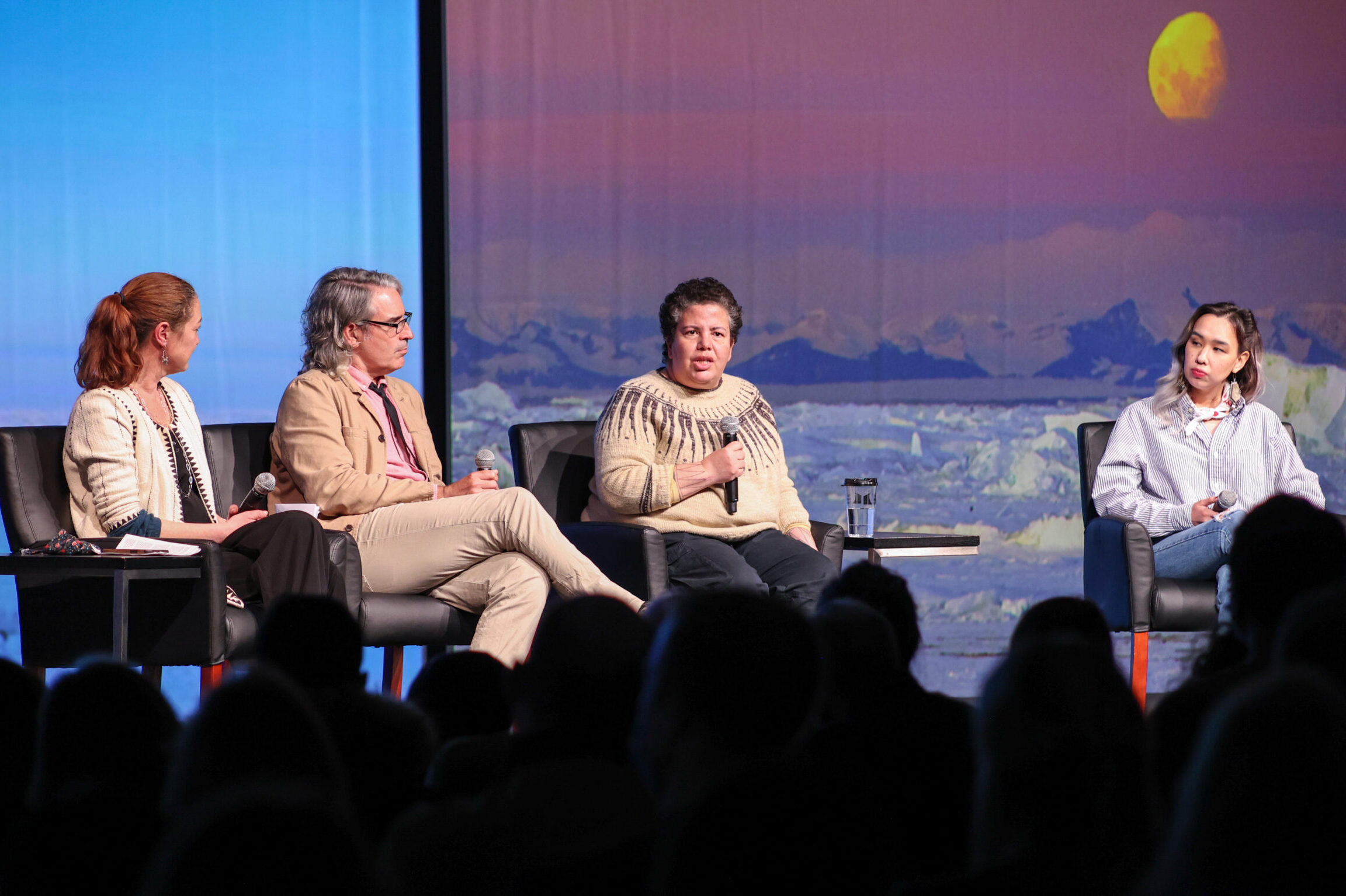
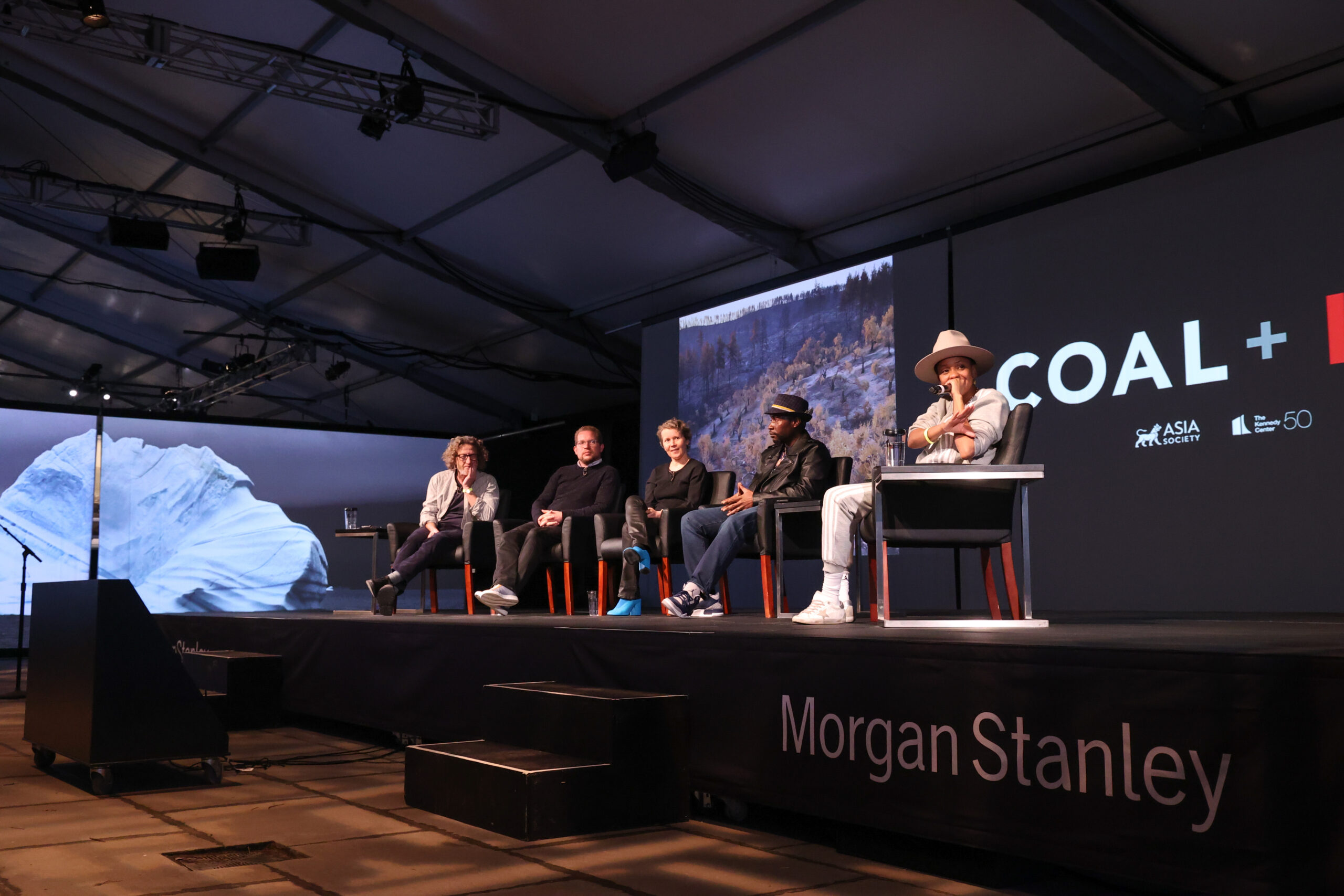
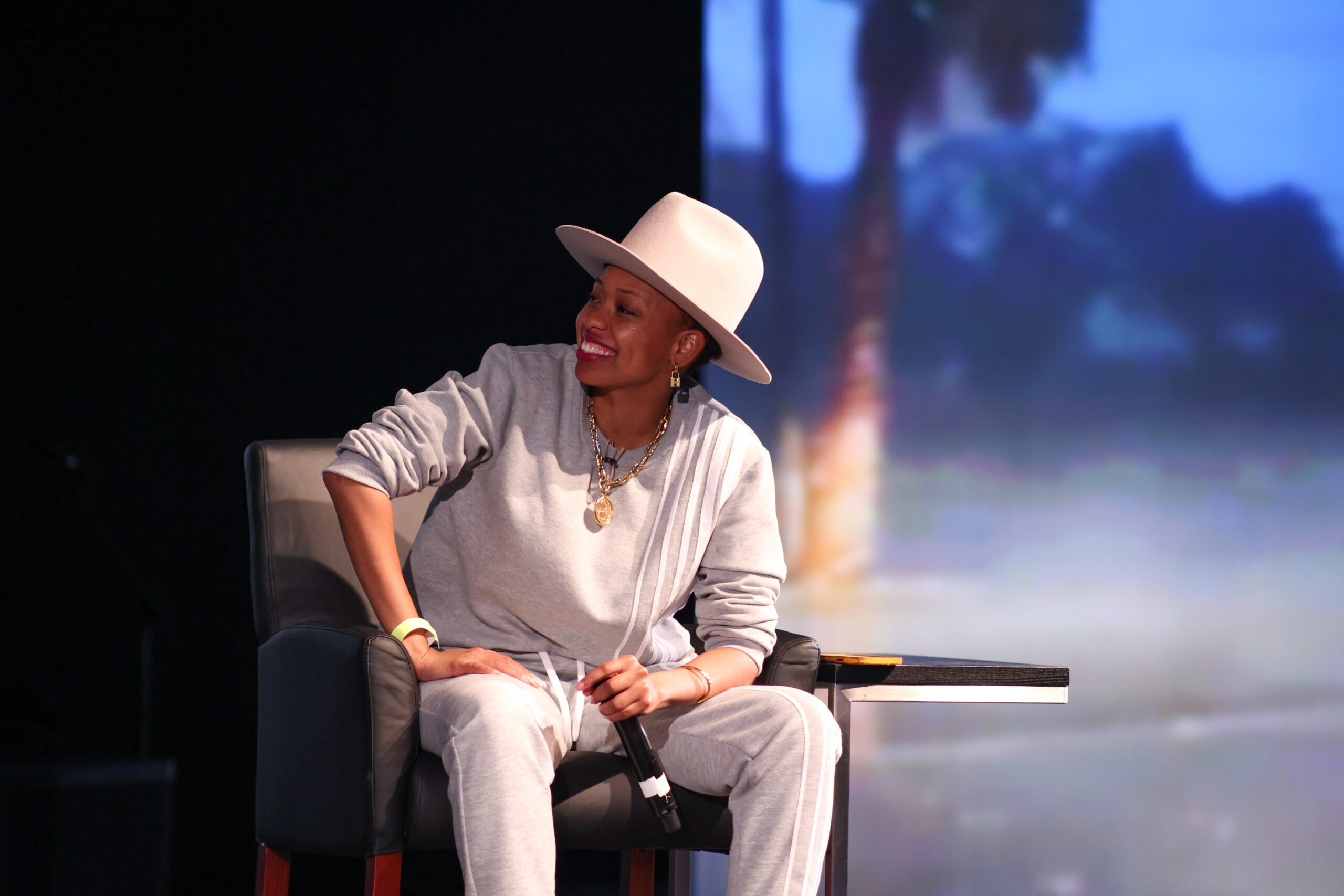
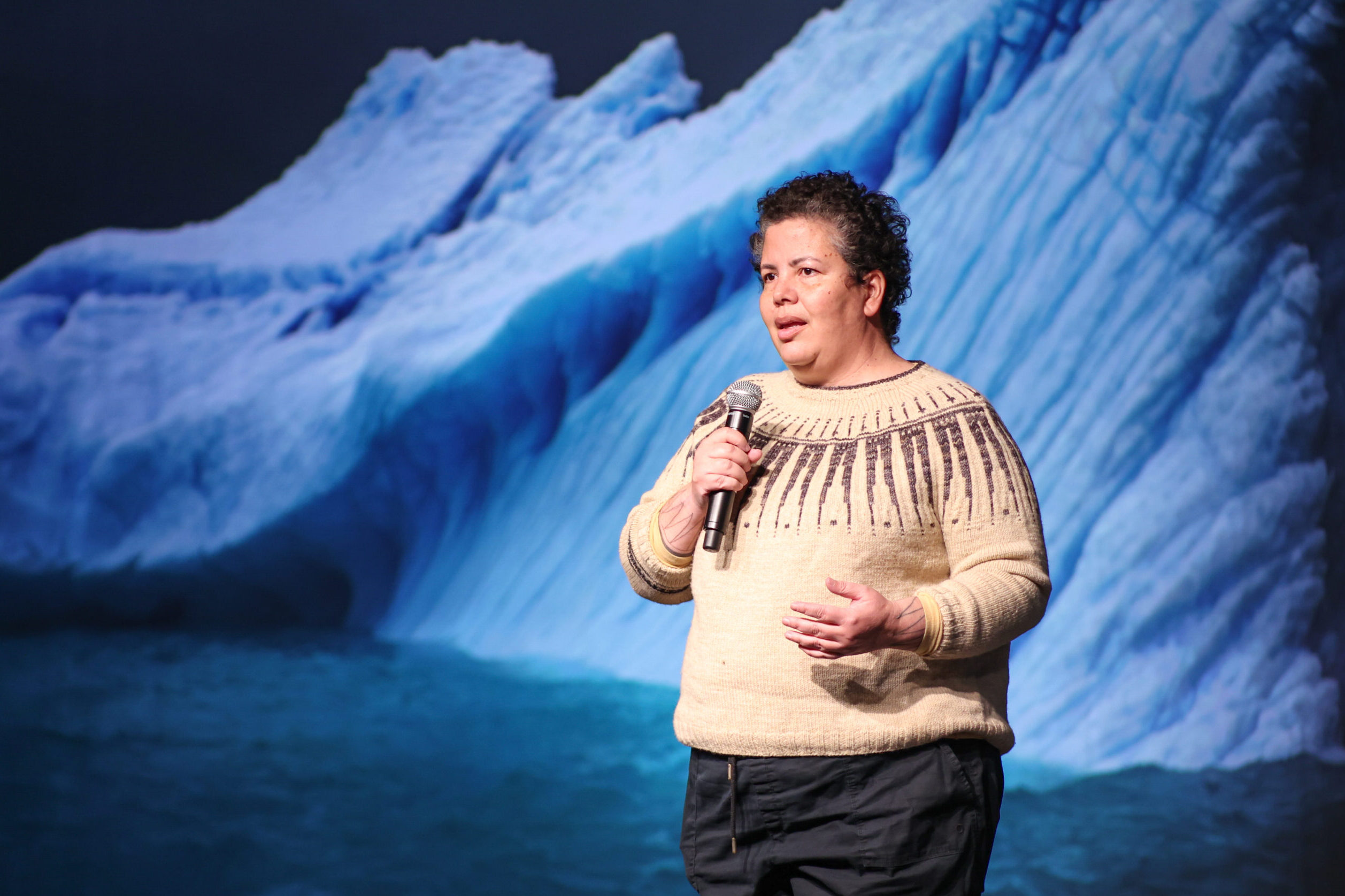
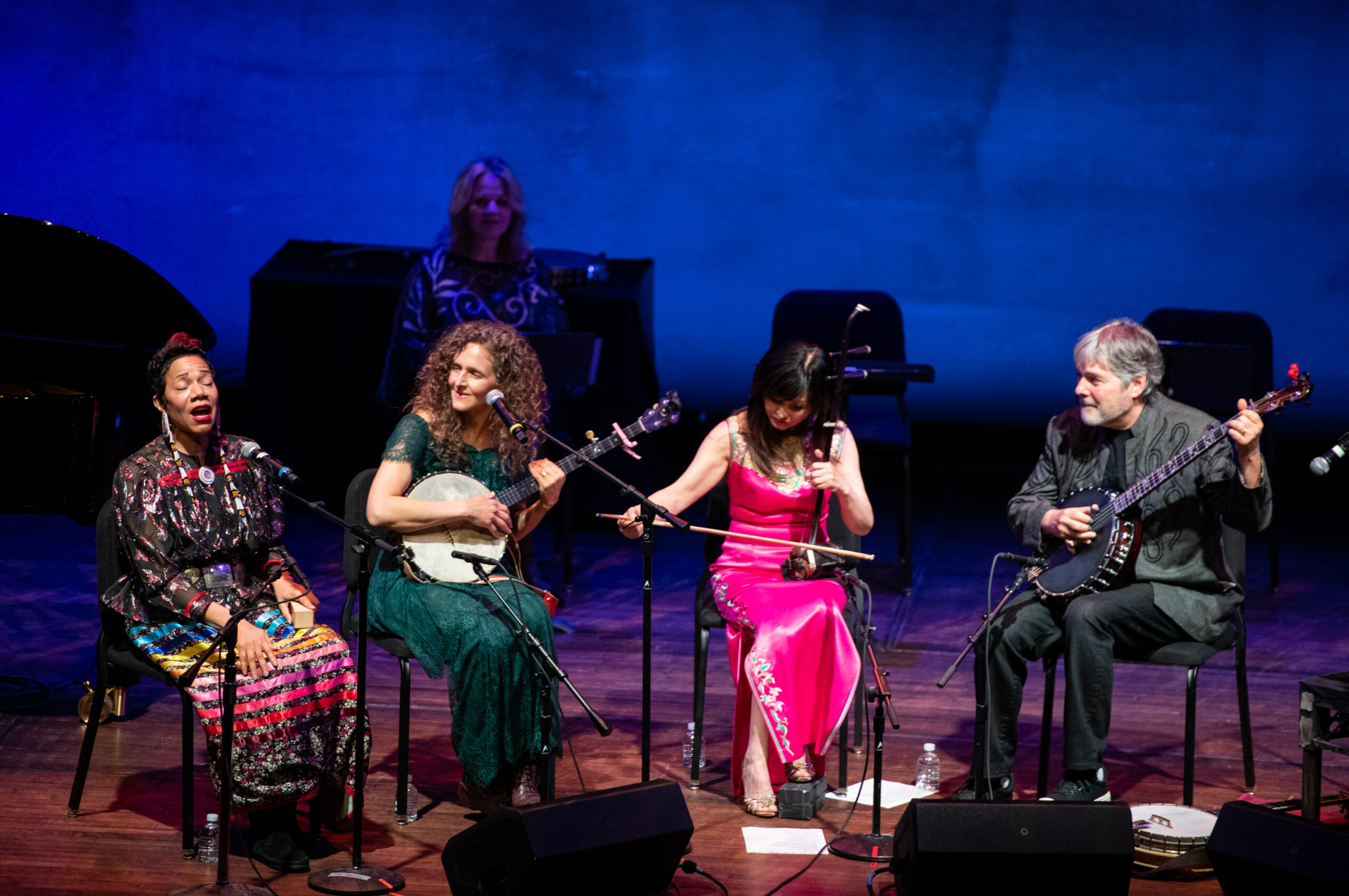
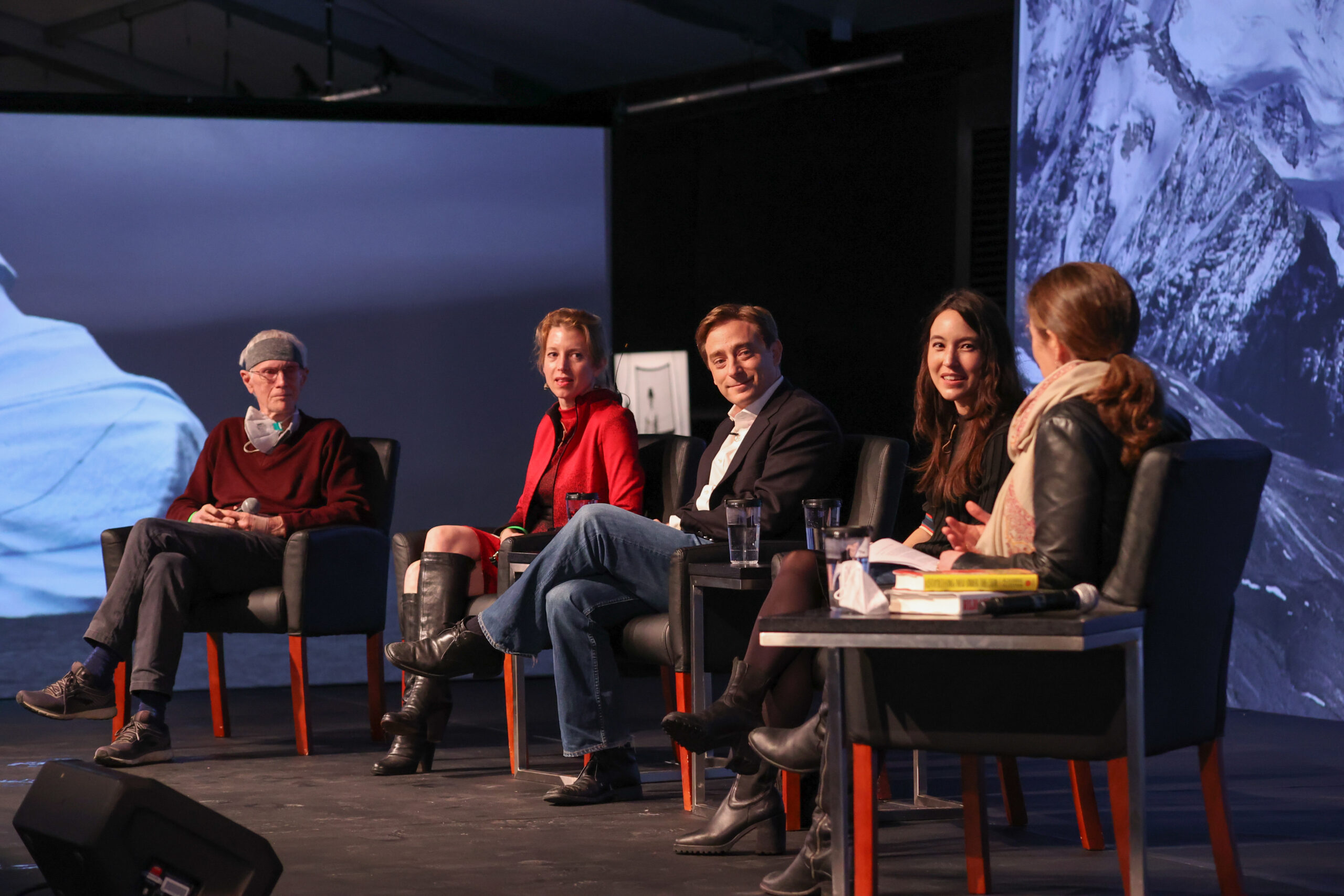
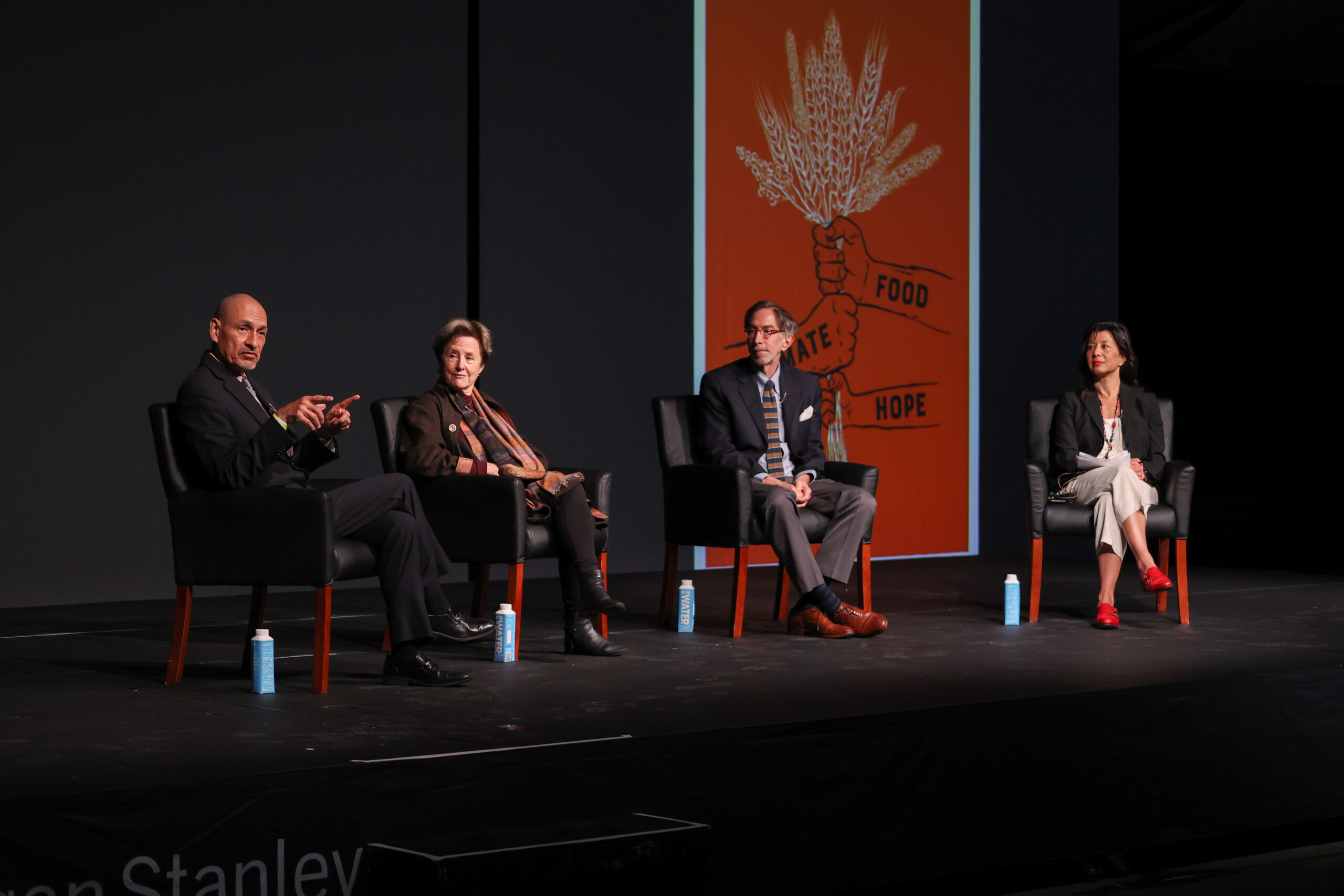
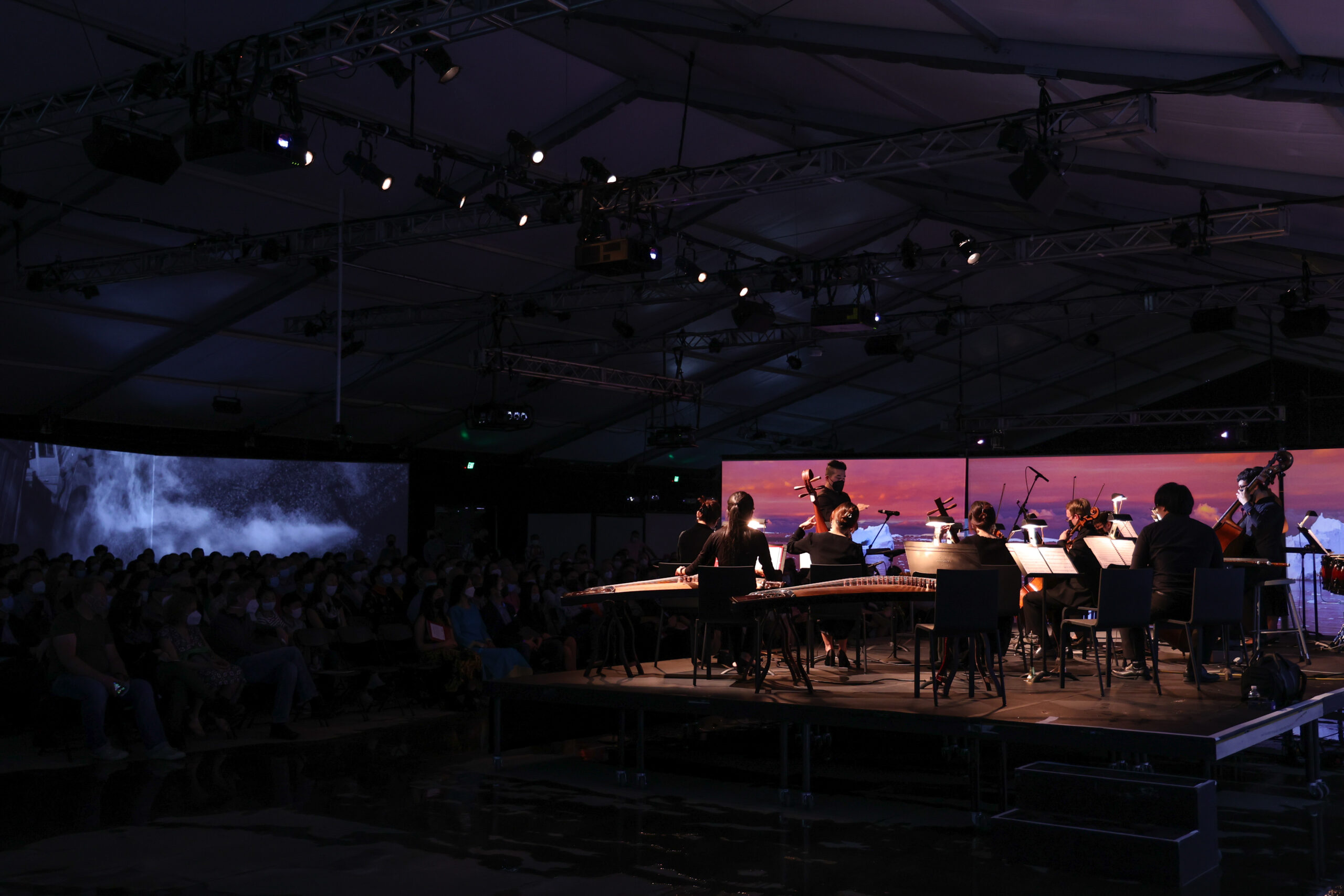
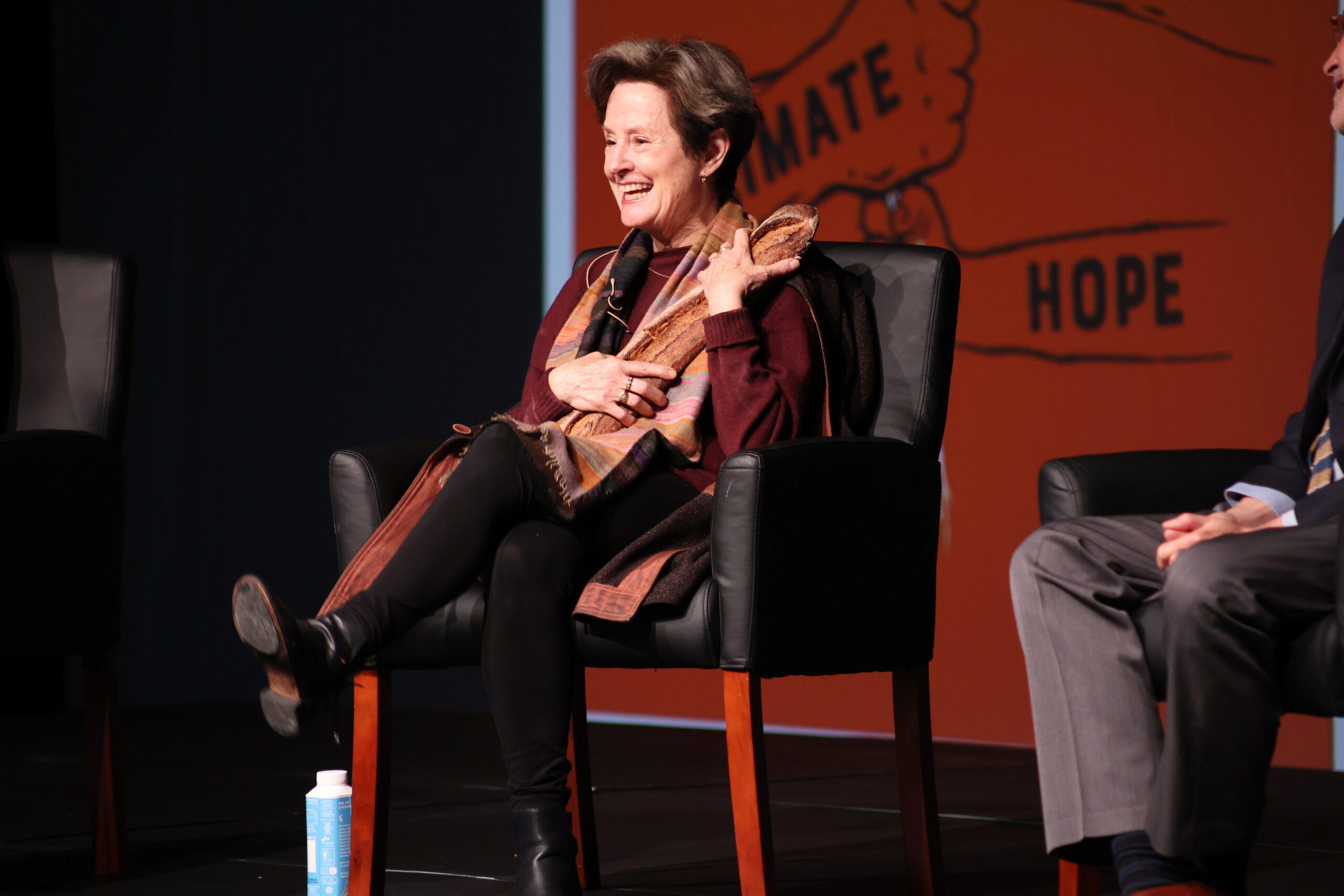
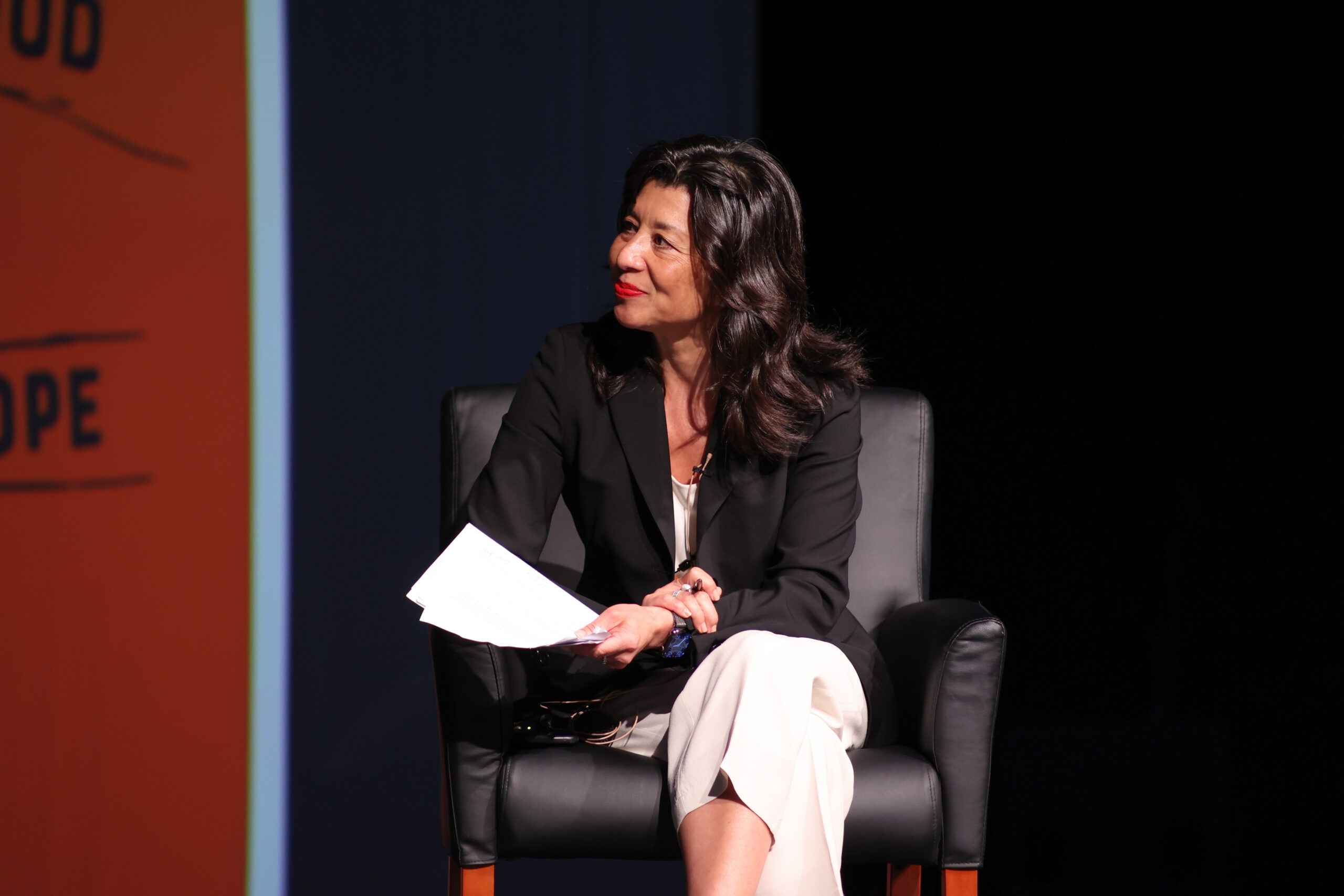
COAL + ICE in D.C. centered around a vibrant six-week festival of climate-related events, including music, theater, panel discussions, art-making and more. Interventions by guest artists engaged local, national, and global communities, inviting audiences of all ages to join the climate conversation and seek new solutions.
At the introductory press conference for the COAL + ICE exhibition, key stakeholders delivered short addresses and answer questions from assembled press. Remarks were given by Deborah Rutter, president of the John F. Kennedy Center for the Performing Arts; Kevin Rudd, Asia Society president and CEO; and Orville Schell, executive producer of COAL + ICE and Arthur Ross director of the Center on U.S.-China Relations at Asia Society.
Curators Jeroen de Vries and Susan Meiselas, photographers Daniel Beltrá, David Breashears, Cameron Davidson, Gideon Mendel, Darcy Padilla, and Jamey Stillings were present for a guided tour and reception to mark the exhibition opening.
A conversation with image makers and activators, innovating at the intersection of art and climate action. Participants included OnRaé Watkins of the Smithsonian FUTURES/Freedom Futures collective, who served as moderator; Tarik ‘Konshens The MC’ Davis, a hip-hop artist/songwriter/educator and speaker; Benjamin Petit, photojournalist and organizer of the Dysturb/#ReframeClimate Initiative; Gideon Mendel, a COAL + ICE photographer; and Sari Nordman, a performance artist.
This virtual panel discussion was presented as part of “Agents of Change in an Interdependent World,” an ongoing series of programs, cosponsored by OneShared.World, the Culture as Diplomacy Initiative of the Asia Society, and the John Brademas Center of New York University.
In advance of World Water Day, Water in a Shared World: Artist Perspectives (practice or action) featured four artists who have taken artistic practice and expression as a potent means to reach people across the globe. Each of them has interpreted the urgency of the water crisis today as the focus of a creative expression. The circumstances we are living in today require us to connect globally — to share and grapple with the pressing, emerging, threatening challenges that transcend borders. The panelists are deeply concerned about how artistic practice can build awareness and inspire further action.
Leading environmental journalists and writers shared how they balance the hopeful with the apocalyptic to create compelling and urgent narratives about our planet’s most pressing issue. Participants included ChinaFile editor Susan Jakes, New Yorker correspondent Evan Osnos, Time correspondent Aryn Baker, and novelist Alexandra Kleeman.
Inspired by Greta Thunberg’s urgent question, “Can you hear me?”, an ensemble of DC-area artists and activists presented an original performance that wove their own experiences of living, creating, and organizing within the climate crisis with Greta’s words.
The performance featured Ashanee Kottage, Elliot Williams, Lilli Hokama, Myiah Smith, and Nadia Nazar. This event is part of We Hear You—A Climate Archive, a global performance project co-conceived by Caitlin Nasema Cassidy and Jacob Hirdwall that explores youth perspectives on climate crisis/chaos. Presented in collaboration with Georgetown University Laboratory for Global Performance and Politics and Georgetown Environment Initiative.
In the second The Long Conversation, a collaboration between Asia Society Northern California and the Long Now Foundation, experts and leaders from climatology, journalism, energy policy, and U.S.-China relations participated in a relay of two-person dialogues focused on the climate crisis.
Speakers included Kevin Rudd, president and chief executive officer of Asia Society; Orville Schell, Arthur Ross director of the Center on U.S.-China Relations at Asia Society; Jennifer Holmgren, chief executive officer of LanzaTech; Fan Dai, executive director of the California-China Climate Institute at the University of California, Berkeley; Chenjian Li, university chair professor at Peking University; Bin Ouyang, associate director of the Center on U.S.-China Relations at Asia Society; and Zander Rose, executive director of The Long Now Foundation. Topics covered by the speakers included the current state of U.S.-China relations, differing attitudes towards climate change in the U.S. and China, climate policy in action, key technological developments in combating climate change, how the Ukraine crisis is impacting China, and why there is still hope for the future and younger generations.
The U.S. Premiere of Sea Sick, a one-woman show by award-winning Canadian journalist, author and playwright Alanna Mitchell, exploring the ocean, environment, and climate change.
The ocean contains the switch of life. Not land, not the atmosphere. The ocean. And that switch can be turned off. Sea Sick is a critically acclaimed production about climate change, and the state of the global ocean, which has toured Canada and the world. Experience this powerful story in which Mitchell uses science and delicate wit to tell us about her journey to the bottom of the ocean, the demons she discovered there, and her hope for the future.
A conversation about climate change, agriculture, and the future of food. Participants included Tom Vilsack, current U.S. secretary of agriculture and former governor of Iowa; and Gary Hirshberg, chief organic optimist at Stonyfield Organic. The conversation was moderated by Mary Kay Magistad of the Center on U.S.-China Relations at Asia Society.
What we eat has long been influenced by travel, trade, innovation, and fundamentally, culture. This panel explored the threat and impact climate change is exerting on the global food system, and potential solutions. How will climate change affect diets, food culture and food availability, especially for marginalized communities?
Participants included Corby Kummer, executive director, food and society at the Aspen Institute; Michael Pollan, author, journalist, and Knight Professor of science and environmental journalism at the UC Berkeley Graduate School of Journalism; Ricardo Salvador, senior scientist on food and environment at the Union of Concerned Scientists; and Alice Waters, founder of Chez Panisse and The Edible Schoolyard Project. The conversation was moderated by Johanna Chao Kreilick, President, Union of Concerned Scientists and introduced by Larry Pressler, former U.S. Senator.
Al Gore has dedicated the last twenty years of his life to finding creative ways to communicate about climate change, from powerful presentations in front of world leaders, to award-winning documentary films. These days, it is more important than ever to find new and creative ways to communicate about the climate crisis, from photography and film, to poetry and performance. This evening featured Al Gore in an intergenerational conversation with youth climate leaders from Georgetown University (Anya Wahal, Carson Ramirez, Myiah Smith, and Sayed Erfan Nabizada) who are focused on just that – using art and community building to raise awareness about the climate crisis.
An extraordinary group of musicians, traversing traditions from classical to folk, came together in a collaborative evening of musical reverence for nature driven by the urgency to defend life on our planet. Global musical styles find a common voice that highlights the humanizing quality of music and our relationship to our ancestors and the earth. Jiebing Chen, Sandeep Das, Renée Fleming, Martha Redbone, Hao Jiang Tian, Abigail Washburn, and Bela Fleck joined together for this musical homage to the earth.
This evening of song as storytelling answered the urgent call for us to come together for the planet.
“Music has been a driver of community for millennia. It engenders empathy and emotion, creates that cathartic moment that brings us together to cooperate and make change.” —Renée Fleming
Presented in collaboration with the Pulitzer Center, this evening was devoted to telling the stories of climate change in the Arctic with a focus on the stories of Indigenous communities. Through arts, photography, podcasts, and exhibitions, “Seeing Change” is an exploration of storytelling on the front line of climate change.
The event featured COAL+ICE photographer Camille Seaman’s photographs from the Arctic, journalist/podcaster Alice Qannik Glenn’s reporting on contemporary Native life in urban Alaska, and documentary photographer and filmmaker Louie Palu’s melting ice block work from Arctic Passage, followed by a conversation between the artists. The conversation was moderated by Nathalie Applewhite of the Pulitzer Center, with opening remarks by Coal + Ice producer Leah Thompson. Prior to the panel discussion, Katherine Jossi of the Pulitzer Center presented work from Indigenous photographers covering climate change around the world.
Artists of Conscience: COAL + ICE Panel Discussion and Frankenthaler Climate Art Awards Presentation
Hosted by The Phillips Collection, this conversation brought together figures from the arts, policy, and scientific communities to discuss how the arts can be an impetus for action against climate change.
The panel focused on the power of artists as advocates for change and how policy makers and artists have and can collaborate effectively. Each participant spoke about their commitment to climate change work, then engaged in a group discussion. Participants included Congressman Don Beyer, U.S. Representative from Virginia’s 8th District; Susan Meiselas, co-curator of COAL + ICE; Clifford Ross, artist; Felice Stadler, Vice President of Political Affairs of the Environmental Defense Fund. The conversation was moderated by Nora Halpern, independent curator and Vice President of Americans for the Arts.
The Philippines is one of 18 mega-biodiverse countries in the world that are home to two-thirds of the Earth’s biodiversity and hold a roughly 70 percent of the world’s plants and animal species. Yet, biodiversity loss – largely due to illegal logging, poaching and organized crime– is increasing at a rapid pace, making it a top priority for global conservation.
Ashoka presented this conversation with Ann Dumaliang, co-founder of the Masungi Georeserve. Located on the outskirts of Manila the Masungi team is shaping a new eco-tourism model that is self-sustaining, regenerative and responsive to organized crime. The conversation with was hosted by Tony La Viña, a life-long teacher, lawyer, human rights and climate justice advocate, and social entrepreneur.
Cuban costume designer Celia Ledón discussed her work creating sustainable fashion using recycled materials with with Manuel Carmona Yebra, Counsellor for Environment and Oceans at the Delegation of the European Union to the United States. The discussion was moderated by Erica Cusi Wortham, PhD. The evening included conversation, videos, and a live demonstration of Celia’s technique.
Featured Speakers/Artists
Nathalie Applewhite, Laetitia Delaunay Badolo, Aryn Baker, Bahar Behbahani, Daniel Beltrá, Don Beyer, David Breashears, Caitlin Nasema Cassidy, Jiebing Chen, Rachel Cooper, DJ Cuzzin B, Fan Dai, Sandeep Das, Tarik ‘Konshens The MC’ Davis, Jeroen de Vries, Ann Dumaliang, DJ FACE, Béla Fleck, Renée Fleming, Vibha Galhotra, Alice Qannik Glenn, Al Gore, Yazhi Guo, Nora Halpern, Lilli Hokama, Susie Ibarra, Susan Jakes, Esther Maureen Kelly, Alexandra Kleeman, Ashanee Kottage, Corby Kummer, Tony La Viña, Celia Lédon, Chenjian Li, Susan Meiselas, Gideon Mendel, Alanna Mitchell, Sayed Erfan Nabizada, Nadia Nazar, Sari Nordman, Evan Osnos, Bin Ouyang, Louie Palu, Benjamin Petit, Michael Pollan, Carson Ramirez, Martha Redbone, Zander Rose, Clifford Ross, José Rubio, Kevin Rudd, Deborah Rutter, Ricardo Salvador, Orville Schell, Felice Stadler, Camille Seaman, Myiah Smith, Jamey Stillings, Michael Tilson Thomas, Hao Jiang Tian, Laura Tyson, Anya Wahal, Abigail Washburn, Alice Waters, OnRaé Watkins, Elliot Williams, Erica Cusi Wortham, and Manuel Carmona Yebra.



